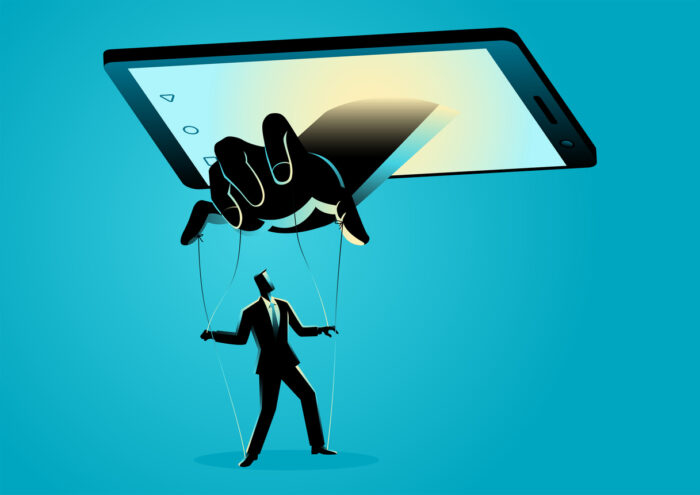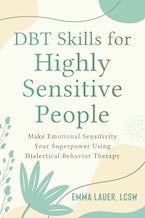By Emma Lauer, LCSW, author of DBT Skills for Highly Sensitive People
As a therapist, TikTok has been on my mind a lot lately. It seems that on a weekly basis, at least one client will start a sentence with, “I saw this thing on TikTok…” and they’ll go on to describe a short clip that sounds very validating in one way or another. It’ll often be a collection of symptoms that are succinctly explained and packaged into a diagnosis, or a video related to attachment theory that (again, succinctly) explains a behavior pattern or why something might be a trigger. These sorts of videos can feel like a lightbulb going off. What was once confusing and frustrating is now made clear, and answers are provided.
Many of us have, very understandably, found a lot of comfort in TikToks, reels, videos, and Instagram posts that help us make sense of mental health struggles that are often painful, complex, or misunderstood. I want people to feel less alone in their struggles. I want clients to feel validated, and I want mental health struggles to be normalized and better understood. I also see some downsides to people using social media as their main source of mental health information.
Both Instagram and TikTok only offer small bits of information that are, of course, not personalized. It’s impossible to take something that was written to appeal to as many people as possible and make it apply to a personal situation that is inevitably nuanced and complicated. Thankfully, therapists on social media are generally pretty good about giving this caveat. While Instagram has been around for quite a few years now, mental health pages have soared in popularity in recent years, and the issue of depersonalized snippets of information is even more prevalent on TikTok, the platform du jour. This is where I see the most information about various mental health diagnoses, such as “5 Unexpected ADHD Symptoms.” This can lead to new insights about one’s experiences, as well as a lot of self-diagnosing.
There’s no getting around the fact that diagnosing requires meeting one-on-one with a licensed professional. I hope that people can perhaps use mental health posts and TikToks to seek care if they read about symptoms or experiences that resonate and are concerning, but as tempting as it might be, someone cannot draw conclusions about their mental health from these posts alone. If people feel that they can self-diagnosis via TikTok, I worry that they may also believe they can self-treat via TikTok, too.
This is problematic without even considering the concern that the information may not be accurate. Social media platforms are not designed exclusively for licensed mental health professionals, so there is often concern about the quality of information that people get. When necessary, I’ll correct any misinformation that I hear clients relay, but otherwise, I try to stick with what is meaningful to the client. What about the video resonated with them, and why? What does that tell me about what’s important to them right now or what’s impacting their life most? If I keep my focus on these questions, I’m less likely to get distracted by issues around the quality of their information sources. The same goes for self-diagnosing. Rather than getting wrapped up in frustration with the client’s self-diagnosis, I try to focus on: Why is this important to them? What are they experiencing that’s painful or affecting their life? And maybe it leads to a diagnosis that ends up being immensely helpful for the client.
The group practice where I work has a successful Instagram and TikTok that I’m certainly grateful for. People tell us on a regular basis that something we posted was meaningful or comforting to them, and clients have found our practice via social media. I also hope that both givers and receivers of widely distributed mental health information can interact with this content more mindfully, with consumers taking everything with a grain of salt and using posts as cues to get curious and investigate further, rather than taking them as fact.
Emma Lauer, LCSW, is a therapist specializing in the treatment of eating disorders, self-harming behaviors, and trauma. Emma is an eye movement desensitization and reprocessing (EMDR)-certified therapist, and has taught at Arizona State University. She currently practices therapy and oversees interns and other staff therapists as clinical supervisor at Find Your Shine Therapy, a group private practice in Tempe, AZ



 2024 Peace Playbook: 3 Tactics to Avoid Clashes with Your Partner
2024 Peace Playbook: 3 Tactics to Avoid Clashes with Your Partner